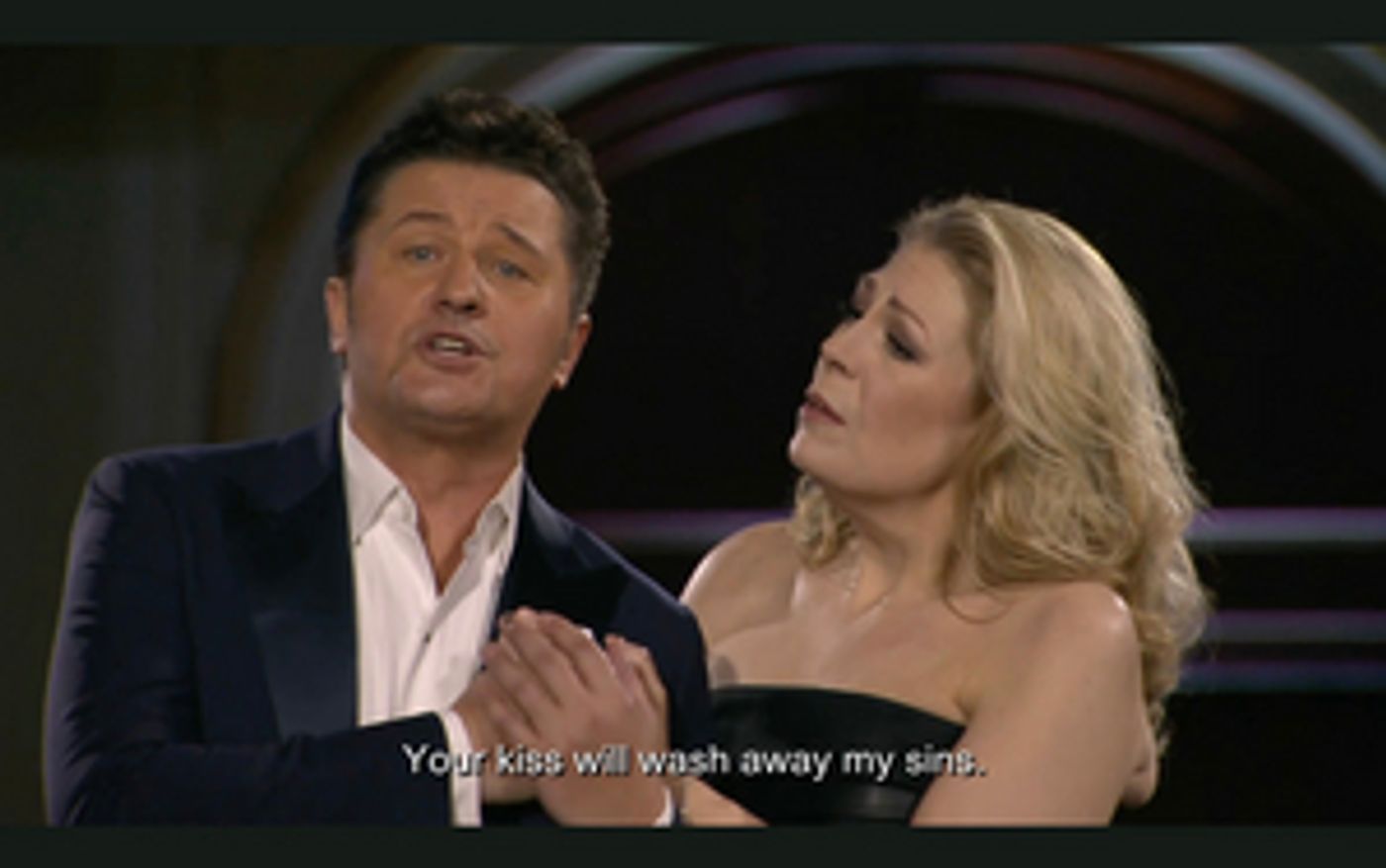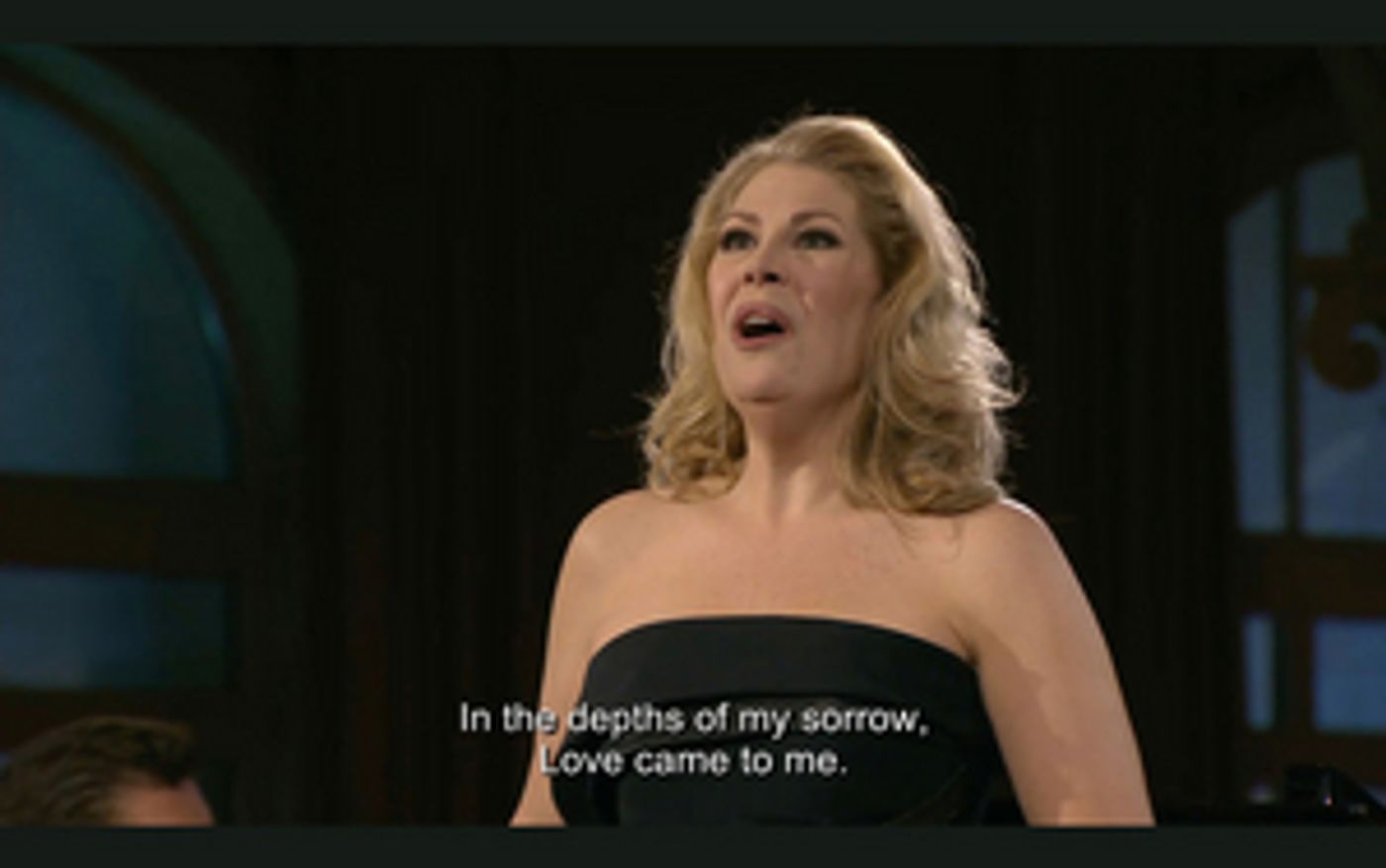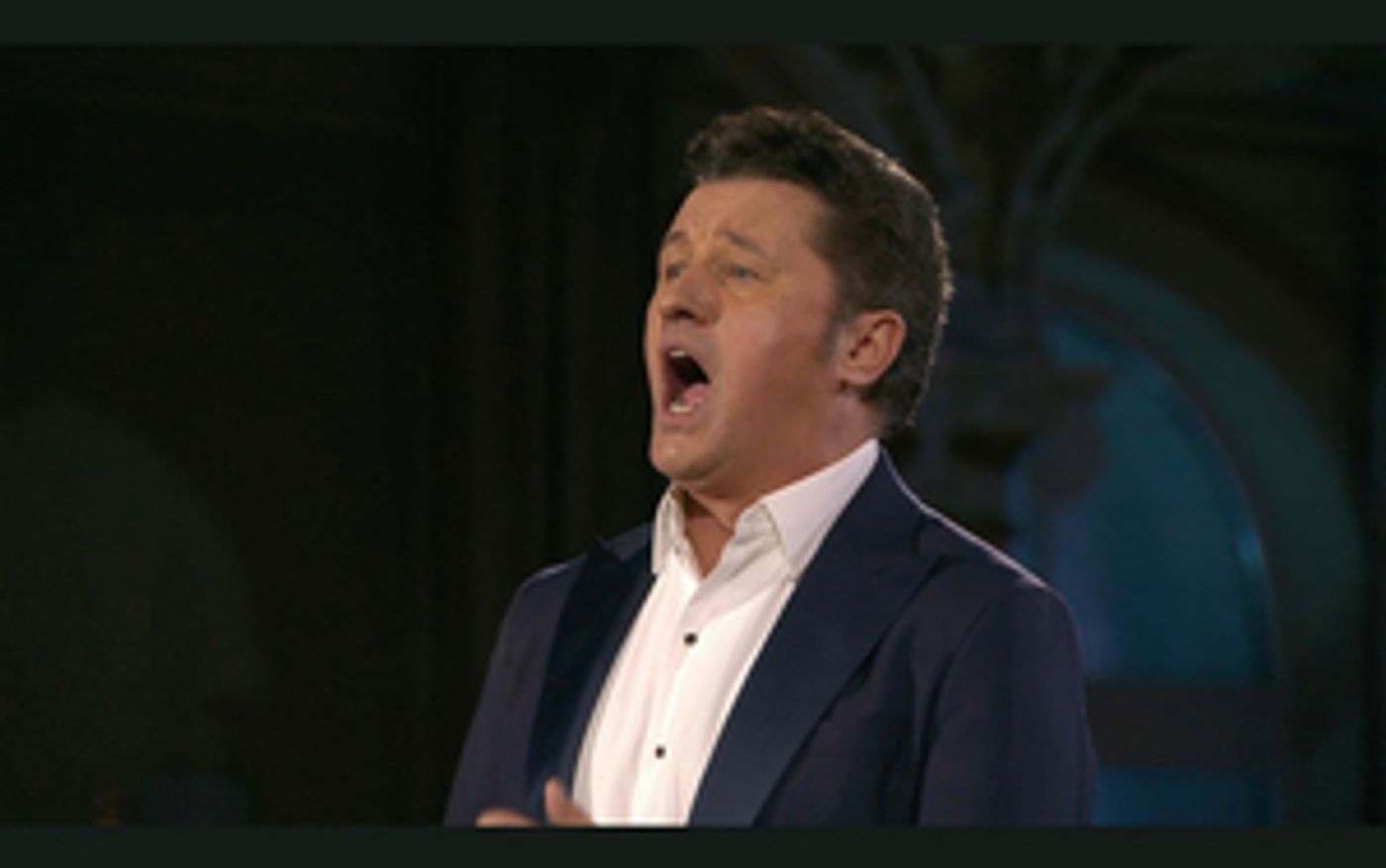Review: Radvanovsky Gets Better and Better, Beczala Shows Off His Slavic Roots in Latest “Met Stars Live” Concert
The Stadhalle in Wuppertal, Germany, was a thoroughly dramatic setting

from the live concert.
The latest in the Met's live, pay-per-view concert series, hosted by Christine Goerke, from varied fascinating locales around the world, took place at the historic town hall in Wuppertal, Germany, with soprano Sondra Radvanovsky and tenor Piotr Beczala on the bill, along with pianist Vincenzo Scalera. It's available on demand through February 5.
Radvanovsky boldly chose Verdi's "Pace, pace" from LA FORZA DEL DESTINO as her "warm up"--a whopper of a piece under any circumstances--while Beczala went for the composer's "Quando le sere al placido..." from LUISA MILLER to tune up his tonsils. The result gave us a good preview what lay ahead in the next 90 minutes.

But the two had some surprises up their sleeves, as their first duet, the famous "Teco io hat sto...Non sai tu che se l'anima mia..." from Verdi's BALLO, proved. It's not without its challenges--I recall Deborah Voigt walking Pavarotti through it, holding his hand--but it gave them both opportunities to show off their command of dynamics at both ends of the scale. (She won, methinks, with the dark beauty of her voice and ravishing control a knockout.)
As has been the case during the run of the series, the singers stopped the music for a bit to remind audiences what they were missing by not being at the Met or any other house, even if the sound systems are terrific. Nothing beats being at a live performance, even if the broadcast, as Beczala said, allows the singers to be "sharing the healing power of opera" with listeners worldwide.
A trio of arias from Dvorak's RUSALKA gave them both a chance to shine. She glowed in what she called "her favorite aria," "The Song to the Moon," dedicated to her father. (You'd have to be made of stone not to be moved by it, in this riff on the same story that inspired Disney's "Little Mermaid.")

But Beczala was special here. I interviewed him when he first sang the Prince at the Met and he told me that his teacher had warned him of the role's difficulty, because "...It's very high, very low, very dramatic, very lyric--all in four short scenes." Yet, he showed off his affinity for singing in Slavic languages, and can still muster the necessary freshness that the Prince's aria demands, along with the power for the ending. (He also sang, gloriously in Polish, "Szumią jodły na gór szczycie" from Moniuszko's HALKA or THE HAUNTED MANSION.)
He was joined by Radvanovsky for the opera's final duet, where she sang beautifully but sadly, about her fate of tormenting him forever and luring him to his grave. Beczala showed he can still float notes wonderfully, though they were scarce elsewhere in the program.
The last opera that the concert put in the spotlight was Giordano's ANDREA CHENIER, which gave them another chance to play off one another dramatically, "Vicino a te s'acqueta..." ("When you are near me..."), her voice sounding particularly pure here. They each had a show-stopper from the opera: She, the famed "La mamma morta," he "Come un bel di' di Maggio."
There were other arias that showed why they're such valued assets to the Met and other houses: For Radvanovsky, Puccini's "Sola, perduta, abbandonata" for Manon Lescaut and Cilea's "Io son l'umile..." and Mascagni's poignant tenor aria "Mamma, quel vino e generoso." I was relieved that they skipped "Somewhere" from WEST SIDE STORY, which appeared on an earlier version of the program, with the disastrous recording from Kiri te Kanawa and Jose Carreras still ringing in my ears.
Pianist Scalera did an admirable job jumping from composer to composer with aplomb, without blinking an eyelash.
For tickets to further performances of this pair of singers or future performances with Anna Netrebko, Sonya Yoncheva and Angel Blue, see the Met's website.
Reader Reviews
Videos

